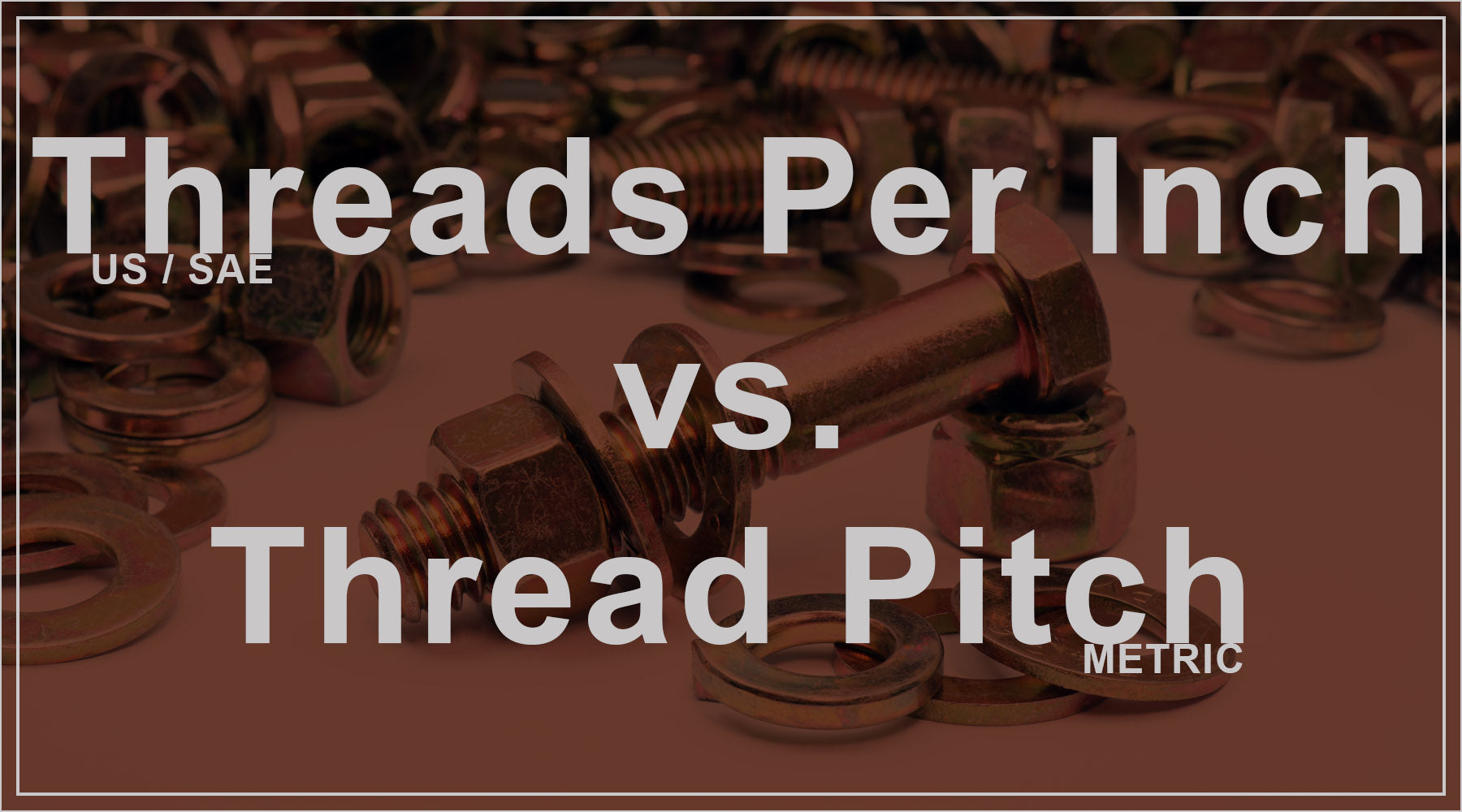Quick Answer: Metric fasteners specify thread pitch — the distance between thread peaks measured in millimeters. US/SAE fasteners specify threads per inch (TPI) — how many threads occur along one inch. Both systems offer coarse and fine versions of the same nominal size, which can be confusing when you’re mixing measurement systems.
Need look-ups? See our Metric Thread Pitch Table and US Threads Per Inch (TPI) Table.
Metric Threads — Pitch (mm between threads)
In metric notation, the pitch is the distance (in millimeters) from one thread crest to the next. A smaller pitch number means a finer thread.

Example: M8-1.25 × 40 mm
- M8 — nominal diameter 8 mm
- 1.25 — thread pitch (1.25 mm between thread peaks)
- 40 mm — length of the screw
Measuring pitch: use a thread gauge, or measure across several threads with calipers for accuracy (e.g., measure across 10 crests and divide by 10).
Quick reference: Metric Thread Pitch Table
US / SAE Threads — TPI (Threads Per Inch)
In SAE/US notation, the second number is TPI, the count of threads along one inch. A higher TPI means a finer thread. You’ll often see UNC (coarse) and UNF (fine) variants for the same size.

Example: #10-32 × 6″
- #10 — nominal size (≈0.19″ major diameter)
- 32 — TPI (UNF = fine; #10-24 would be UNC = coarse)
- 6″ — length of the screw
Measuring TPI on short screws? Count threads over a shorter fraction (e.g., 1/2″) and multiply to one inch.
Quick references: US TPI Table • US Screw Sizes in Inches
Metric vs SAE — Key Differences at a Glance
| Feature | Metric (ISO) | SAE / US (Inch) |
|---|---|---|
| Measurement Unit | Millimeters (mm) | Inches |
| Thread Spec | Pitch (mm between peaks) | TPI (threads per inch) |
| Typical Notation | M8-1.25 × 40 mm | #10-32 × 6″ |
| Coarse vs Fine | Smaller pitch = finer (e.g., 1.0 vs 1.25) | Higher TPI = finer (e.g., 32 vs 24) |
| Common Usage | Automotive, industrial, global standard | US manufacturing, hardware |
| ID Tip | Measure crest-to-crest spacing (mm) | Count threads per inch (or scale up from a fraction) |
Frequently Asked Questions
What is thread pitch?
In metric threads, pitch is the distance in millimeters between adjacent thread peaks (e.g., 1.25 mm).
What is TPI in screws?
Threads Per Inch (TPI) is how many thread peaks fit in one inch along the screw. Higher TPI = finer thread.
How can I tell if a screw is metric or SAE?
Try a thread gauge or compare to charts. If spacing measures cleanly in mm, it’s metric. If threads per inch match UNC/UNF values, it’s SAE/US.
What’s the difference between coarse and fine threads?
Coarse threads (larger pitch or lower TPI) install quickly and are more tolerant of debris. Fine threads (smaller pitch or higher TPI) offer finer adjustment and more shear area but require better alignment.

